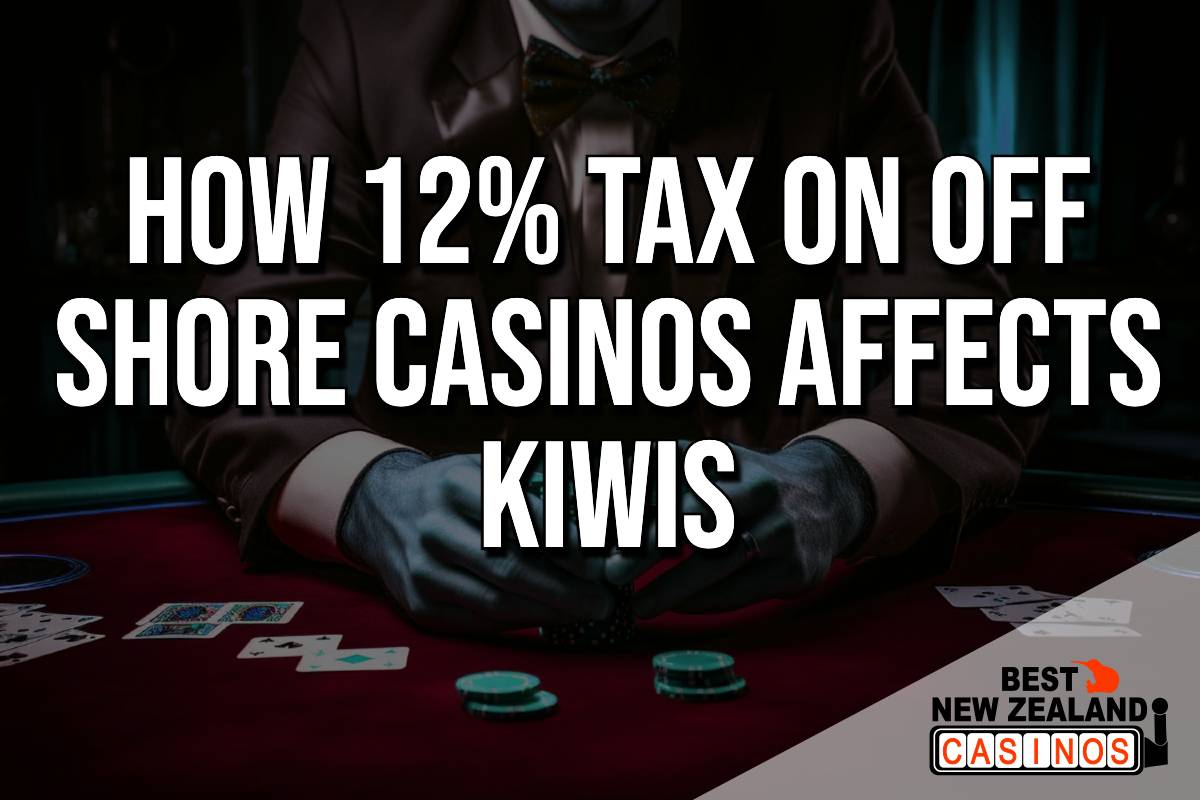New 12% Tax & Regulation on Offshore Casinos and its Impact on NZ Gamblers
- Online Casinos
- Latest News
- New 12% Tax & Regulation on Offshore Casinos and its Impact on NZ Gamblers
Offshore online casino operators will need to cough up a 12% gaming duty tax on their gross revenue from 1 July 2024. This is according to New Zealand Finance Minister Nicola Willis, who addressed this in Parliament.
Decision makers believed that this gaming duty tax would generate an expected average annual income of NZ$179 million over four years, totalling NZ$719 million.
Importance of understanding how it affects New Zealand gamblers.
The gambling tax forms part of the Nationals Back Pocket Boost tax program. It was intended to address a loophole that allowed offshore operators to exploit advantages not to physical casinos in New Zealand. However, it is predicted that Kiwis will have to bear the brunt of this – through a potential increase in online casino games.
Despite government’s projected revenue figures, the Inland Revenue Department (IRD) says the tax gaming revenue from offshore online casinos would likely yield less than what was initially anticipated.
In fact, a Regulatory Impact Statement issued by IRD indicates an estimate suggesting an initial revenue of NZ$35 million in the first year, increasing gradually by 5% annually to reach around NZ$145 million in total. This projection is significantly lower than national estimations by over half a billion dollars.

Increased Costs for NZ Gamblers
How the 12% tax raises gambling costs
When the Government adds a 12% tax on gambling, playing games of chance might get pricier in several ways. First off, the folks running the gambling spots might ask players to pay more. If you’re at a casino, you might notice the minimum amount you can bet has gone up, or the house takes a more significant piece of the action. So, it costs more to get the thrill of the game.
Then there’s the chance that winning might not feel as sweet. Casinos could cut back on how much money winners take home or offer fewer bonuses. So, even if you win, you might not win as much as you used to. Also, with this new tax, some online casinos might not spend as much on visual appearances of their sites or even limit bonus offers.
Impact on gambling habits and frequency
This could also mean that not as many freebies would be available at offshore online casinos or that the overall experience is not what it used to be. If things aren’t as nice, people might not enjoy gambling as much, even though they spend the same money. Higher taxes can also mean that not as many new companies will want to join the gambling game.
The coalition government plans to introduce legislation to fulfil its tax commitments in the coming weeks. The Amendment Paper for the Taxation Bill includes measures such as restoring interest deductibility for landlords and reducing the bright line test period.
“The following measure aims to help everyday people in New Zealand retain a portion of their earnings by offering tax breaks for income in the upcoming May Budget,” Finance Minister Nicola Willis was quoted as saying.

Changes in Gambling Preferences
This new tax could see potential shifts in the gambling choices Kiwis make due to higher costs associated with it. This means fewer choices on where to play. If there’s not much competition, there’s no big reason for operators to keep things exciting or prices low. If it costs more to gamble, some folks might decide to do it less often or not spend as much when they do. This is especially true for people who gamble for fun now and then. If they cut back, the operators would see a huge drop in revenue.
| Consideration of alternative gambling options In essence, adding a 12% tax on gambling can make it more difficult for Kiwi gamblers to choose casinos the way they want too. Right now, this opens the door for low deposit casinos, who ensure lower risks, and affordability through deposits as low as NZ$1. |
Impact on Problem Gambling
Higher taxes can also mean that this impacts problem gamblers. Despite many NZ online casinos offering responsible gambling tools to self exclude, deposit limits etc, a tax like this would have a ripple effect on everything about an online casino – from the cost of games per round, to higher deposits, to admin fees. Problem gamblers sometimes don’t know how to stop, and now with the potential for increased pricing, this could mean bigger losses for players, if they continue to play their favourite games at a higher price.
Benefits of Responsible Gambling
We can agree that effective regulation is crucial to encouraging responsible gambling behaviours. Regulators can mandate that online casinos and sportsbooks institute responsible gambling measures such as self-exclusion, limits on how much you spend, and control over your gambling activity. By forcing online sites to prioritize responsible gambling, regulators can work on mitigating the harms associated with problem gambling.
Regulatory bodies can encourage online casinos to promote responsible gambling tools and resources to their clients, including information about responsible gambling practices and self-assessment tools.
Regulators can mandate training and certification programs to ensure the gambling industry is equipped to identify vulnerable players who are at risk of problem gambling. Regulatory agencies can also support research initiatives and collaborate with stakeholders to better understand all the factors contributing to this problem.
Conclusion
In the next few weeks, the coalition government will introduce this new legislation that delivers on its tax commitments. The Amendment Paper to the Taxation (Annual Rates for 2023-24, Multinational Tax, and Remedial Matters) Bill includes restoring interest deductibility for landlords and reducing the bright-line test. It will also remove depreciation deductions for commercial and industrial buildings.
“The next step will be to ensure ordinary New Zealanders can keep more of what they earn by providing personal income tax relief in the May Budget,” said Willis.
The Government seems to have acknowledged that the gambling tax will not generate as much revenue as expected. The cabinet initially decided to establish a regulatory framework for online gambling.
Revenue Minister Simon Watts said, “Regulating online casino gambling will support tax collection, minimize harm, and provide consumer protections for New Zealanders.”
